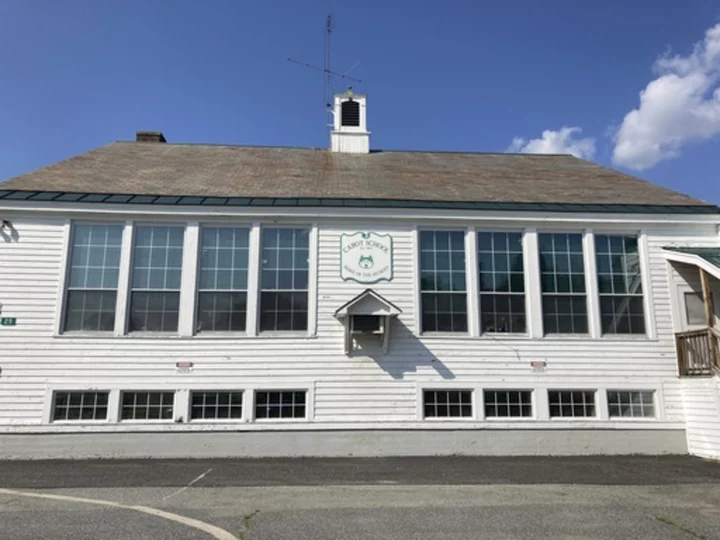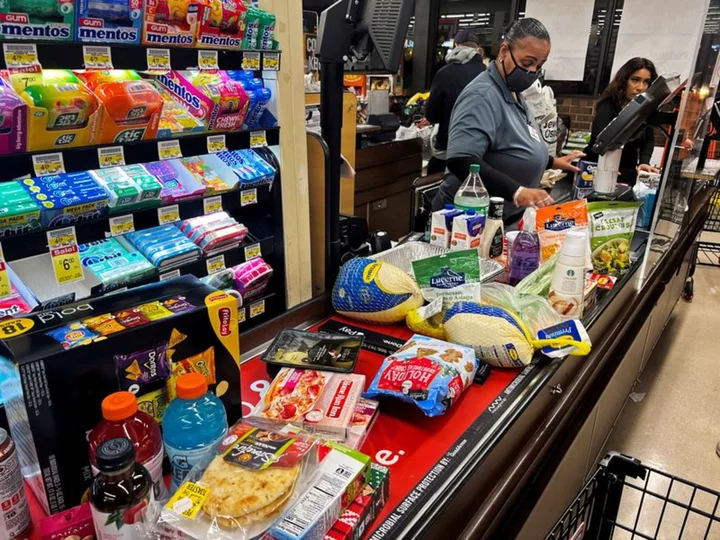CABOT, Vt. (AP) — Dozens of Vermont school districts have sued chemical giant Monsanto over toxic contamination in educational buildings from now-banned industrial chemicals known as PCBs.
Last year, Vermont became the first state in the country to require older schools to test their indoor air for polychlorinated biphenyls, which were used in building materials and electrical equipment before 1980.
More than 90 school districts filed the complaint on Friday in federal court. They're seeking to recover costs and damages because, under Vermont’s law, schools with high-enough contamination levels must reduce exposure. Removing the PCBs will be expensive, and certain districts may have to demolish buildings and replace them with new ones — which in total could cost them "hundreds of millions, if not billions, of dollars,” the lawsuit says.
The PCBs are present in the school buildings from caulking and glazing compounds, sealants, adhesives, and other construction materials.
Monsanto said the case has no merit and that “third party companies, not Monsanto” produced the PCB-laden materials likely used at the schools.
“Monsanto never manufactured, used or disposed of PCBs in Vermont and has not manufactured these products for more than 45 years,” the company said in a statement late Monday. Monsanto is now owned by Bayer, the pharmaceutical and biotechnology company.
The company is also seeking an emergency hearing and the preservation of evidence. Monsanto wants the districts to let it participate in environmental testing and PCB-source identification, and to document and observe the remediation work.
PCBs were used in building materials and electrical equipment like transformers, capacitors and fluorescent lighting ballasts. The U.S. Environmental Protection Agency banned manufacturing and certain uses of them in 1979 over concerns they could cause cancer and other illnesses, according to the Vermont Department of Environmental Conservation.
A 2019 Associated Press investigation found that millions of fluorescent light ballasts containing PCBs probably remain in schools and day care centers across the U.S. — four decades after the chemicals were banned.
The chemicals can be released into the air and students and staff can be exposed by breathing in dust or vapors containing them; getting dust on their hands and then consuming it while eating or drinking; and having skin contact with materials that contain the chemicals, according to the department.
PCB contamination forced an entire Vermont high school to move into a closed department store in downtown Burlington, where students have taken classes since March 2021 while the old school is being demolished. The store connected to a now-closed mall underwent a $3.5 million retrofit supported by the state.
Two years ago, three teachers in Washington state who sued Monsanto over exposure to PCBs in fluorescent lights were awarded $185 million. The teachers, who worked at the Sky Valley Education Center in Monroe, Washington, said they suffered brain damage from exposure to PCBs in the fluorescent lighting at the school.
The Vermont attorney general also sued Monsanto last month over PCB contamination in Vermont's schools and natural resources. The chemicals are highly persistent and continue to circulate in Vermont's waters and other natural resources, and have accumulated to dangerous levels in sediment, wildlife and fish, according to the lawsuit. Vermont has a fish consumption advisory for all of Lake Champlain and the Hoosic River because of the contamination, the lawsuit states.
Monsanto also said that lawsuit had no merit for the same reasons it cited in the school districts' case.









